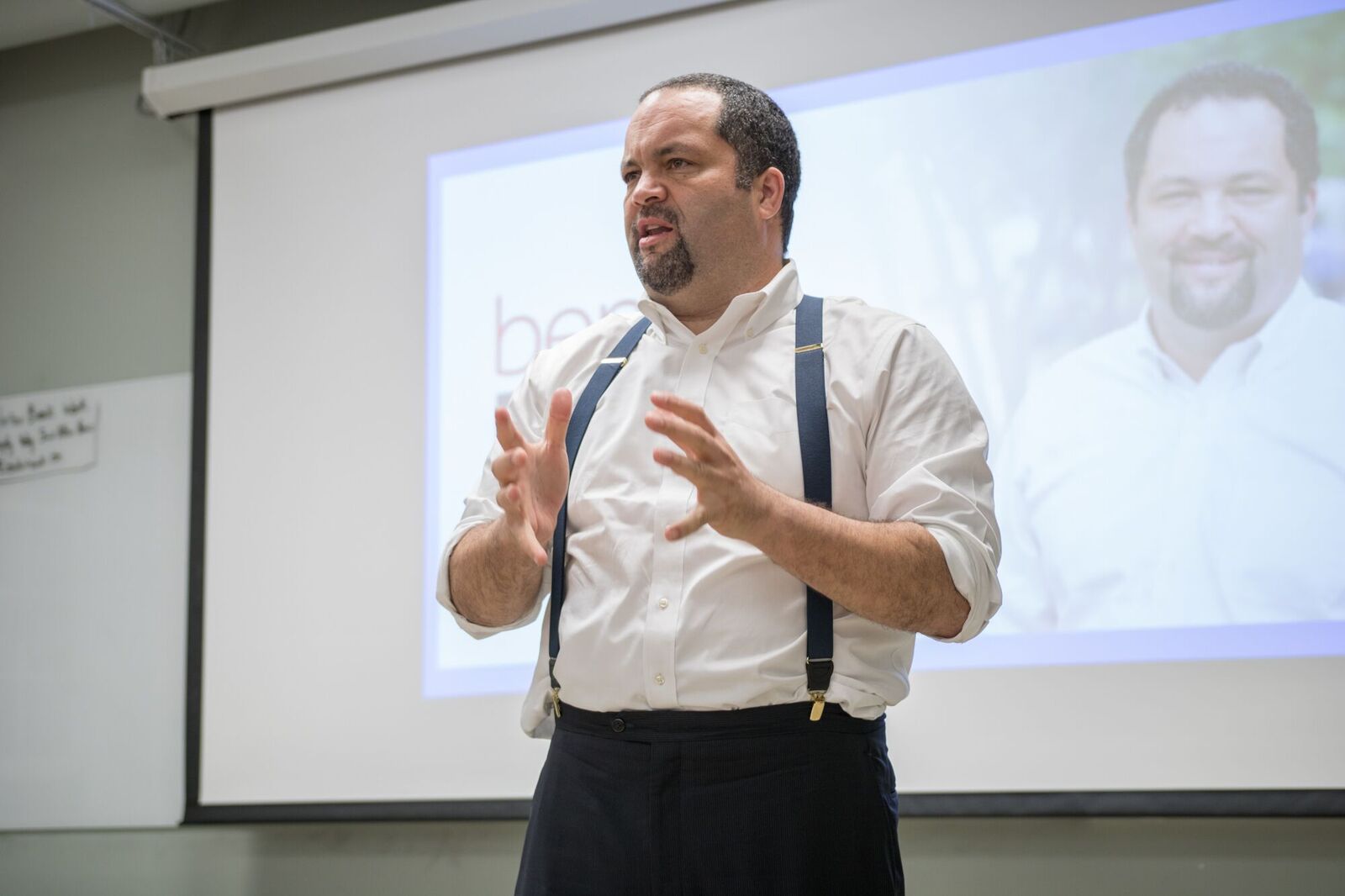Views expressed in opinion columns are the author’s own.
The state of Maryland has long been in a bad way. The wealthiest residents have hoarded more wealth at the expense of the poor and working class. Wages have stagnated and the social safety net is far too stingy to serve Maryland’s most needy. Heroin and fentanyl have ravaged the state and Baltimore has broken murder records. Meanwhile, rising sea levels threaten to swallow the state’s coastal communities in the next few decades.
Maryland needs radical, social-democratic-style governance, but its centrist leaders have consistently failed to satisfy their constituents’ essential needs. Gov. Larry Hogan has withheld critical education funding while Baltimore kids attend school in frigid classrooms. He vetoed legislation to improve the state’s renewable energy goals and publicly came out against accepting Syrian refugees.
[Read more: Larry Hogan wants to appear moderate. He’s not.]
And Maryland’s Democratic leaders aren’t much better. Former Gov. Martin O’Malley frequently prioritized austerity over expanding social welfare programs and fueled the carceral state as Baltimore’s mayor. Mike Miller, Maryland’s longtime senate president, curtails progressive priorities and represents the foundation of Maryland centrist hegemony.
Serious change in Maryland requires moving the Overton window — a term that describes policies deemed acceptable or normal in a political system — to the left. To shift the political center, politicians and activists must organize and run on policies outside the mainstream. As those fringe priorities are normalized, the terms of debate shift and public policy realigns. Demanding radical policies isn’t a lark for the politically naive; it’s an intentional and essential tactic for any movement.
American conservatives are really good at this. The defining political force in the last 40 years is a sharp shift to the right, as the right-wing fringe metastasized into the law of the land. When the Overton window shifted, New Deal Democrats were marginalized and right-wing kooks like House Speaker Paul Ryan seized control of the American policy apparatus.
By his own admission, Barack Obama governed to the right of Richard Nixon, pandering to the Republican party by embracing a conservative health care proposal from the late 1980s only to face hard-line Republican intransigence. Before President Trump called Haiti, El Salvador and African nations “shitholes,” Democrats appeared ready to sign onto a deal restricting legal immigration programs. And a little more than a week later, Senate Democrats agreed to reopen the government on the tenuous assumption that Mitch McConnell is a trustworthy dealmaker who operates in good faith.
[Read more: Chelsea Manning will run for the U.S. Senate in Maryland]
For far too long, conservatives have advanced the most extreme iteration of their ideology, while Democrats and liberals pursued some moderate compromise. The problem is, of course, that as the Overton window shifts, the Democratic compromise position becomes more reactionary. The result is a conservative policy regime that rewards plutocrats and punishes the poor.
Progressives and leftists must prove this rightward shift isn’t inevitable. Now, in 2018, Maryland has the opportunity to secure the politics it deserves.
Exciting candidates abound in the Maryland Democratic primary, which takes place this June. Former NAACP president Ben Jealous is running for governor on a $15 minimum wage and statewide single payer system. Former Army intelligence analyst and famed leaker Chelsea Manning is challenging Maryland’s milquetoast Sen. Ben Cardin. While she has limited political experience and deserves serious scrutiny, Manning’s decision to release records of American atrocities in Iraq exhibited far more courage than nearly any sitting U.S. politician. Both of these candidates could serve as vessels for a leftward trend in Maryland politics.
But, of course, politicians often disappoint. It’s a mistake to rest our hopes in individual figures; rather, Marylanders should complement voting with organizing. Coalitions like ProtectUMD, which is working with a state legislator to reform the handling of hate bias incidents at Maryland’s public universities, show how unabashed activism in our communities can translate into concrete change.
What Marylanders cannot do, however, is settle for the status quo. Unless we drastically change the ideological ground on which Maryland politics is fought, we will jeopardize our future and continue to leave our neighbors behind.
Max Foley-Keene, opinion editor, is a sophomore government and politics major. He can be reached at opinionumdbk@gmail.com.



